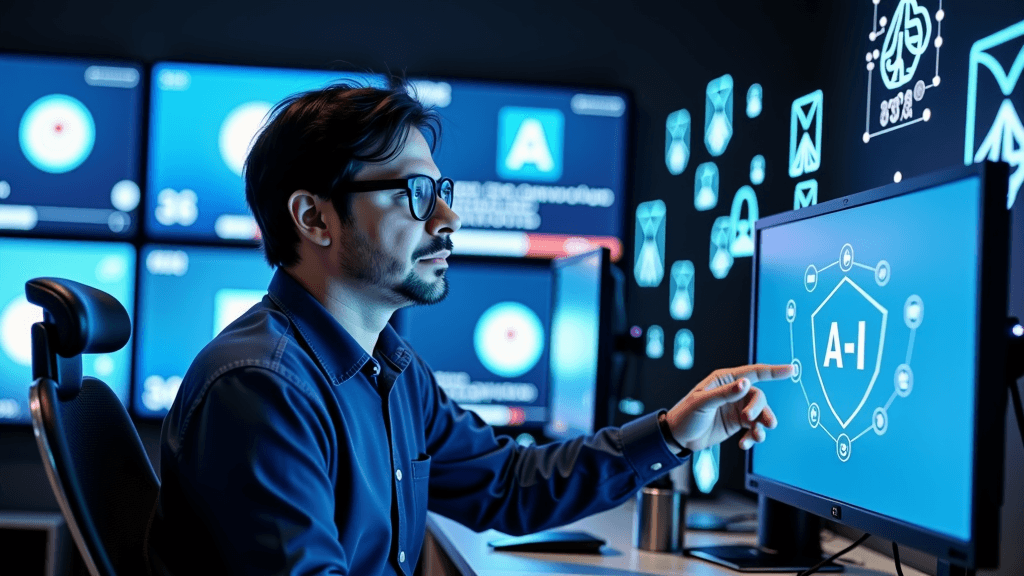AI Radar: From Faux Automation to the Future of Work — The Tech Landscape of the Last 24 Hours
June 2, 2025 | by Matos AI

The Builder.ai Scandal: When “AI” Was Just Humans Working Behind the Scenes
One of the most shocking news stories of the last 24 hours reveals a case that exposes the fragility of the AI startup ecosystem. Builder.ai, a British startup that had raised an impressive US$1.445 million (including from Microsoft), filed for insolvency after being discovered using 700 Indian engineers to write code manually, while selling this operation as being performed by artificial intelligence.
The company, founded in 2015, marketed a no-code platform with a virtual assistant named Natasha who supposedly assembled applications automatically “like Lego bricks.” In reality, the requests were simply passed to a human team in India who manually developed the software — all hidden behind the facade of automation.
As if that were not enough, the company also engaged in an accounting scheme known as 'round-tripping', inflating its revenues by up to 300% for creditors. US authorities have already opened an investigation into the case.
Join my WhatsApp groups! Daily updates with the most relevant news in the AI world and a vibrant community!
- AI for Business: focused on business and strategy.
- AI Builders: with a more technical and hands-on approach.
This scandal raises serious questions about what I have been warning about for years in my mentoring and speaking engagements: the need for transparency in the innovation ecosystem. AI washing — the practice of pretending to use AI when in fact it is not — is becoming as common as greenwashing in the environmental sector. For investors, this is a red flag about the importance of thorough technical due diligence before investing capital.
Regulation and Ethics: Brazil Advances in Combating Deepfakes
Meanwhile, in Brazil, the Communications Committee of the Chamber of Deputies approved a bill that prohibits the creation, use and sale of artificial intelligence programs used to generate fake images with sexual content, known as 'deep nudes'. According to CNN Brazil report, penalties include significant fines, with increases in cases of large-scale production.
The bill also holds digital platforms responsible for removing reported content. These new rules are being integrated into the Brazilian Civil Rights Framework for the Internet and now need to pass through other committees before their final approval.
This legislative breakthrough represents an important step in balancing technological innovation with the protection of individual rights. I have consistently argued that smart regulation is a fundamental pillar for the healthy development of technology — not as a brake, but as an ethical guide.
Meta Replaces Humans with AI: The Dilemma of Automation in Content Moderation
Meta (the parent company of Facebook and Instagram) has announced that it plans to replace its product oversight employees with artificial intelligence. According to the State, the goal is to automate 90% of the review of content such as hate speech and misinformation.
This shift raises legitimate concerns among employees themselves about the effectiveness of automated reviews and the risks associated with releasing potentially harmful content. The move reflects a broader trend in the tech industry toward automation, but it raises fundamental questions about user safety and the ethics of algorithmic oversight.
We are faced with a dilemma that I have been discussing in my WhatsApp groups about AI for Business: to what extent can we trust automated systems for decisions that involve cultural, contextual and emotional nuances? Content moderation is precisely one of those areas where human judgment still seems irreplaceable in many cases.
AI in Public Safety: Technology Helps Combat International Trafficking
A positive use case for AI comes from the North of Brazil. The Federal Police, in a joint operation with the Brazilian Air Force and Navy, seized a semi-submersible vessel used in cocaine trafficking to Europe. According to the S.Paulo Newspaper, the operation involved the use of artificial intelligence to identify atypical river movements, representing a significant advance in the application of technology in the fight against drug trafficking.
This is a concrete example of what I call “AI with purpose” — tools that are not only technically impressive, but that solve real problems in society. It is gratifying to see Brazil advancing in practical and high-impact applications for AI, especially in critical areas such as public safety.
The Future of Work: From Japanese Animation to Business Leadership
Two news stories this week perfectly illustrate the impact of AI on the world of work, at different ends of the professional spectrum. On the one hand, according to the DW, the Japanese animation industry faces intense debates about the future of the profession with the advancement of AI capable of creating Studio Ghibli-style illustrations. Artists express concerns about copyright infringement and the future of the profession.
On the other side of the spectrum, we see the CEO of Klarna, who after laying off 700 employees, used an AI avatar to present financial results, as reported by Minas Tribune. This symbolic movement represents the evolution of automation reaching the level of business leadership, raising questions about authenticity and empathy in management.
This scenario reinforces what I have shared in my lectures on the future of work: we are experiencing a profound transformation that requires the development of what I call CACACA skills (Creativity and Autonomy; Collaboration and Adaptability; Connection and Affection). The most resilient professions will be those that are able to integrate these human skills with new technological capabilities.
AI and Health: Advances in Fetal Medicine
An inspiring application of AI comes from the area of maternal and child health. According to the LOOK, artificial intelligence can identify serious diseases in fetuses by analyzing movements in images of pregnant women, with tools such as the ChRIS project at Boston Children's Hospital.
Despite adoption barriers, some initiatives in Brazil already demonstrate the potential of AI to improve diagnoses and predict health problems, highlighting the relevance of this innovation in modern medicine.
This application perfectly represents what I advocate in my consulting work: AI as a tool to support and augment human capabilities, not as a replacement. In the medical context, algorithms can process huge volumes of data to identify subtle patterns, but the final diagnosis and treatment decisions remain in the hands of healthcare professionals.
China Bets on AI Education: Preparing the Next Generations
While we debate current applications, China is already looking to the future. According to the Brazil 247, the country will introduce mandatory teaching of Artificial Intelligence from September 2025, aiming to prepare the next generations for the new technological era.
The plan includes three stages of teaching, employing interactive games for younger children and complex AI applications for older children. This initiative reflects China's ambition to become a global leader in the sector by 2030.
This strategic move by China resonates with what I have been advocating as the founder of Sirius: the need to completely reimagine our educational models for a rapidly changing world. Education can no longer be just about consuming knowledge, but about creating and applying that knowledge in real and complex contexts.
What Can We Learn from the News of the Last 24 Hours?
The panorama we have observed in the last 24 hours reveals a scenario of profound transformations driven by AI, with all its contradictions and complexities. On the one hand, we see the Builder.ai scandal, showing that not everything that shines in the AI universe is gold; on the other, significant advances in areas such as health and public safety.
This news reinforces three principles that I have defended throughout my journey in the innovation ecosystem:
- Transparency is essential: Trust in the innovation ecosystem depends on honesty about what is really AI and what is just marketing;
- Smart regulation is needed: We need regulatory frameworks that curb abuses without stifling innovation;
- Focus on purpose, not just technology: The most valuable applications of AI are those that solve real, meaningful problems.
In my AI for Business and AI Creators WhatsApp groups, I’ve seen a growing interest from leaders and professionals in understanding how to navigate this complex landscape. The question is no longer “if” AI will transform their businesses and careers, but “how” and “when.”
In my mentoring sessions, I have helped companies and entrepreneurs develop realistic AI adoption strategies that go beyond the hype and focus on real value. As we saw in the case of Builder.ai, the empty promise of automation can lead to disastrous results; on the other hand, well-planned and transparent applications, as we saw in the cases of health and public safety, can generate tremendously positive impacts.
The future belongs to those who can navigate these waters wisely, combining technological vision with human purpose. It is this balance that I continue to seek in every project and initiative I lead.
If you are looking for guidance to navigate this new world of AI applied to business, or want to implement AI solutions in your company or career, get in touch to learn about my specialized mentoring and consulting services.
✨Did you like it? You can sign up to receive 10K Digital's newsletters in your email, curated by me, with the best content about AI and business.
➡️ Join the 10K Community here
RELATED POSTS
View all



